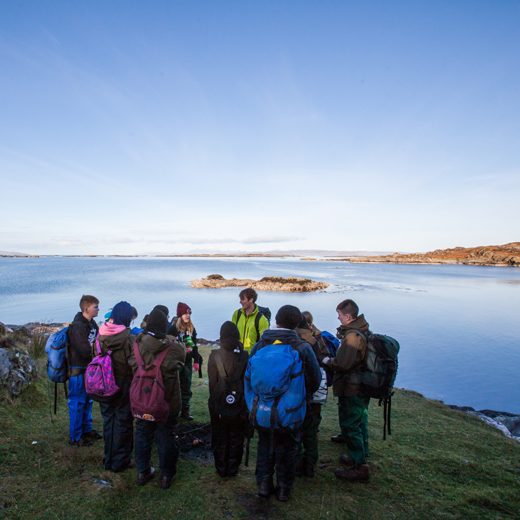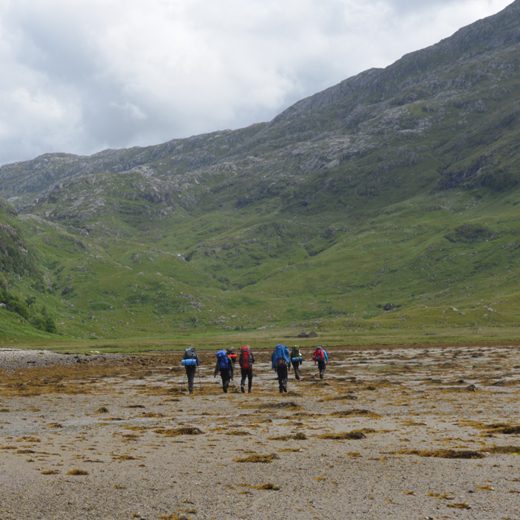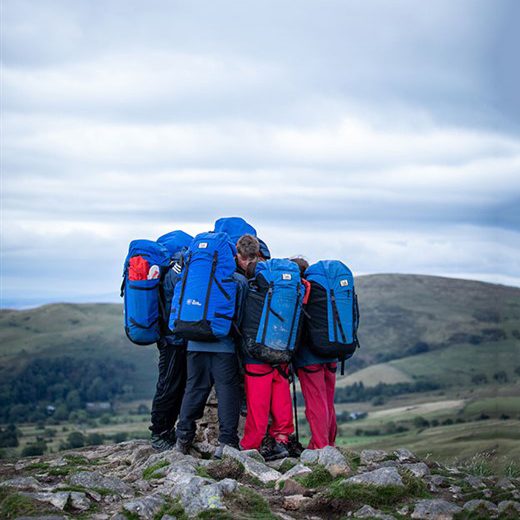Taking a growth mindset outdoors
When delivering our outdoor education courses it is common to meet students who are cautious and hesitant when it comes to trying new things and experiences. Some may be unwilling to participate in a challenge, regardless of whether they have previously experienced it, while others might simply give-in in the face of adversity.
And yet despite this, we know that there are many students who are willing to try new things, bounce back from failure and find strategies to enable them to persist rather than give-in. So the question is, what sets these students apart from the others, and what can be done to help grow this attitude amongst their peers? One answer may lie in the sharing of mindset theory. We try to help students to understand how each mindset can affect the way they feel, think and behave in achievement situations, and how these affect the outcomes they experience. Our method is experiential learning through adventure, but these realisations are equally transferred back into situations within the classroom or extra-curricular hobbies.
Students with a fixed mindset tend to believe that intelligence and character are purely things they’re born with rather than things which can be developed. Whereas students with a growth mindset understand that skills and abilities can be developed and improved by engaging with challenges and applying effort Rather than giving up when things become tough, those with a growth mindset use their efforts to find different strategies to overcome setbacks. As well as trying harder, they try differently.
HOW THEN CAN WE DEVELOP A GROWTH MINDSET ON AN OUTWARD BOUND COURSE, AND HOW DOES THIS RELATE TO THE CLASSROOM?
During our courses the attitudes and behaviours associated with the two mind-sets are incited when participants confront challenging and unfamiliar situations. Requiring participants to leave the safety of their home, daily routines and comfort zones helps us to achieve this. Going on an adventure is an opportunity for them to understand, test and demonstrate their own resources, as well as learn about their own responses to challenging situations. Do they help or hinder when it comes to achievement?
This new-found self-awareness can help young people to understand and practice new ways of thinking and behaving which support them to take on new challenges. In the Outward Bound environment this may be a decision to participate in a gorge scramble, or the choice to continue with a rock climb despite previously believing this was too difficult or scary. In the classroom environment it could be an attitude that a maths problem can be solved, with effort directed towards trying different methods or seeking the appropriate support.
We’ve also found that once students have gained a good knowledge of what a growth mindset is it can begin to form a central part of setting up the day and review sessions at the end of an adventure. For instance – if a student expressed doubt or anxiety about a challenge beforehand and then later achieves it – revisiting and reviewing the initial doubt helps them to realise they’re capable of adopting a growth mindset, which can apply to other areas of their life. We can also begin to identify links between effort and reward, as well as identifying strategies for success.
The next step is to transfer this learning from the wild to the classroom and we’re pleased to report that many schools have done this with some success.
If you would like to find out more about mindset theory and how it could benefit you or your students contact our mindset expert, Kate O’Brien, Senior Instructor at The Outward Bound Trust’s Ullswater centre.


